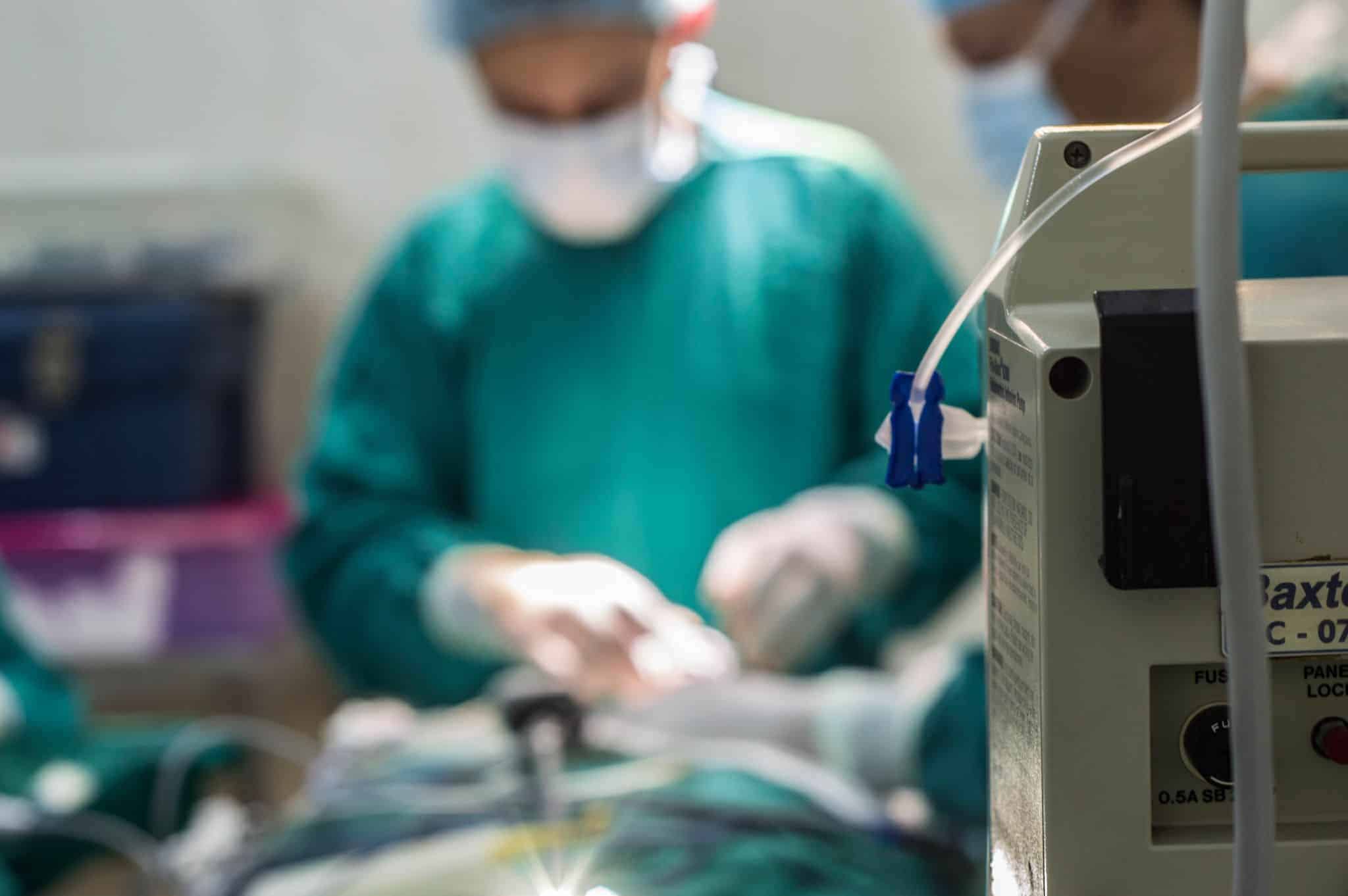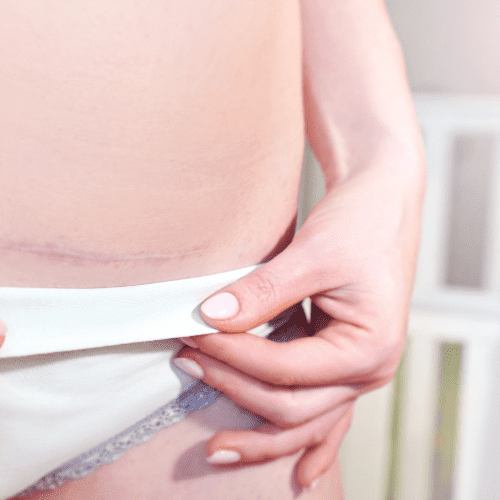You’re holding your baby in your arms when suddenly, you smell something awful. You check the baby’s diaper for poop, but it’s bone dry. Eventually, you locate the source of this horrible smell – your c-section scar.
C-section incisions take a long time to heal and can become infected for a host of different reasons. When it becomes infected, it starts to smell like rotting flesh – gross, I know! But it happens.
Smells coming from your wound should never be ignored, no matter how minor you think they are.
As an Amazon Associate, I earn from qualifying purchases. The links below may be affiliate links. Please read my disclosure policy for more information.
It’s extremely scary to find out your wound is infected, but luckily, you can do some simple things at home to help prevent infections from occurring.
[adthrive-in-post-video-player video-id=”B499VaXg” upload-date=”2022-03-22T11:12:26.000Z” name=”Help, my c-section incision smells!.” description=”” player-type=”collapse” override-embed=”false”]
Is c-section incision odor normal?
No! Absolutely not! If you are regularly cleaning and drying your wound, there is no reason for it to smell.
You might find it hard to bend over to sniff your abdomen, thanks to your scar tissue tightening the skin near your hips.
However, there is a good way to tell if your scar smells and not a rogue dirty diaper left somewhere around the house or smelly pits.
If you have a smell that follows you around wherever you go and persists even after showering, it is pretty reasonable to assume it is coming from your scar.
Usually, a c-section wound that smells is a sign of infection, so it is vital to seek help from a medical expert.
If you are smelling your scar, it is likely the infection is quite nasty and needs antibiotics.
Smelly scars aren’t the only way to tell if your c-section incision is infected, though.
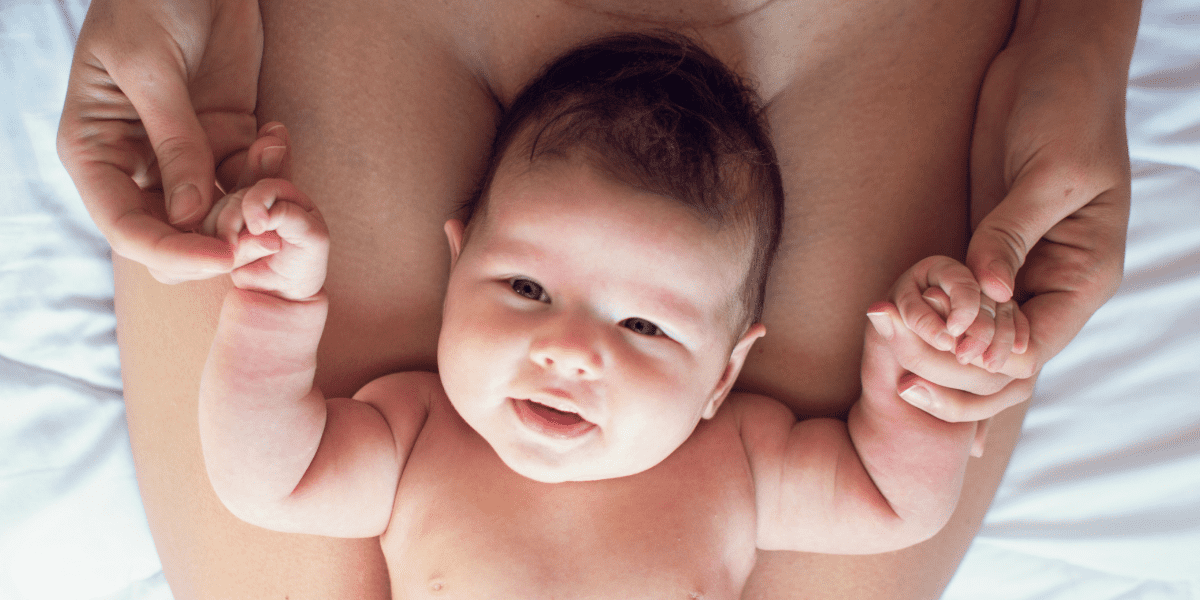
How do I know my c-section incision is infected?
If your incision is infected, there are usually a few tell-tale signs in your body that may help you recognize it.
You may have one, some, or all of them, so seek treatment ASAP if you have a smelly wound coupled with any of the below!
Fever
A common sign of infection is to have a high fever (103F or above). High fevers can be dangerous to the body, so it is essential to treat them immediately.
Scar feels hot to the touch
If your scar is bright red and hot to the touch, this is usually an indication that it is not healing correctly, likely from infection.
Discharge
If you experience weird, colored discharge from your incision or your vagina, you may be looking at an infection. However, don’t assume that just because the discharge isn’t coming directly out of your wound that it isn’t infected.
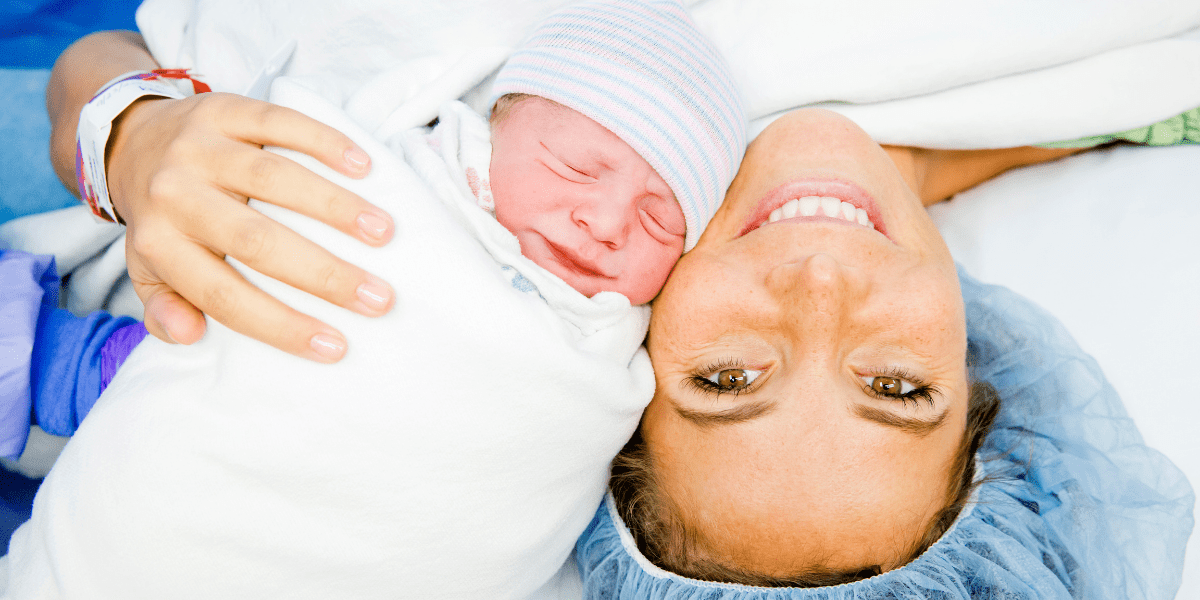
Flu symptoms
When our body fights infections, we get a host of flu-like symptoms. These include shivers, sneezing, coughing, extreme fatigue, and nausea.
Chest pains and difficulty breathing
Some women may experience shortness of breath when fighting an infection. This could be a sign that the infection is spreading. Do not ignore this symptom.
What should I do if my c-section incision opens?
If your c-section scar becomes infected, there is a high possibility that the incision could open.
It may open slightly or significantly. In both cases, go to the emergency room to get your incision re-closed. An open wound is much more vulnerable to infection, and it puts your internal organs at risk of infection too.
How to care for my c-section incision at home to help prevent infection
Although you may be busy looking after your newborn, it is vital to keep up with caring for your c-section scar.
After all, if you get to the stage where your c-section incision smells, it’s too late!
Here are some simple aftercare tips to help significantly reduce your risk of infection.
Keep movement gentle
I know you are busy adjusting to having a new baby in your life, but the last thing you want to do is provoke an infection by pushing your body too far before it is healed.
Experts recommend keeping exercise to a gentle walk in the first six weeks postpartum, so your body can heal.
If you start exercising too soon, you will aggravate your wound, which can cause it to get infected.
Not to mention, getting too sweaty will also invite bacteria into your wound, which can also create an infection.
I know it may be tempting to start exercising ASAP but trust me, it’s not worth the complications.
Avoid heavy lifting
Lifting heavy objects is a quick way to catch an infection in your c-section incision. Why? Because the skin around your wound is vulnerable to tears and heavy lifting involves using your core.
The heaviest thing you should be picking up in the first couple of months postpartum is your sweet new baby.
So, now would be a good time to call your most muscular friends and family members and sweet-talk them into giving you a helping hand.
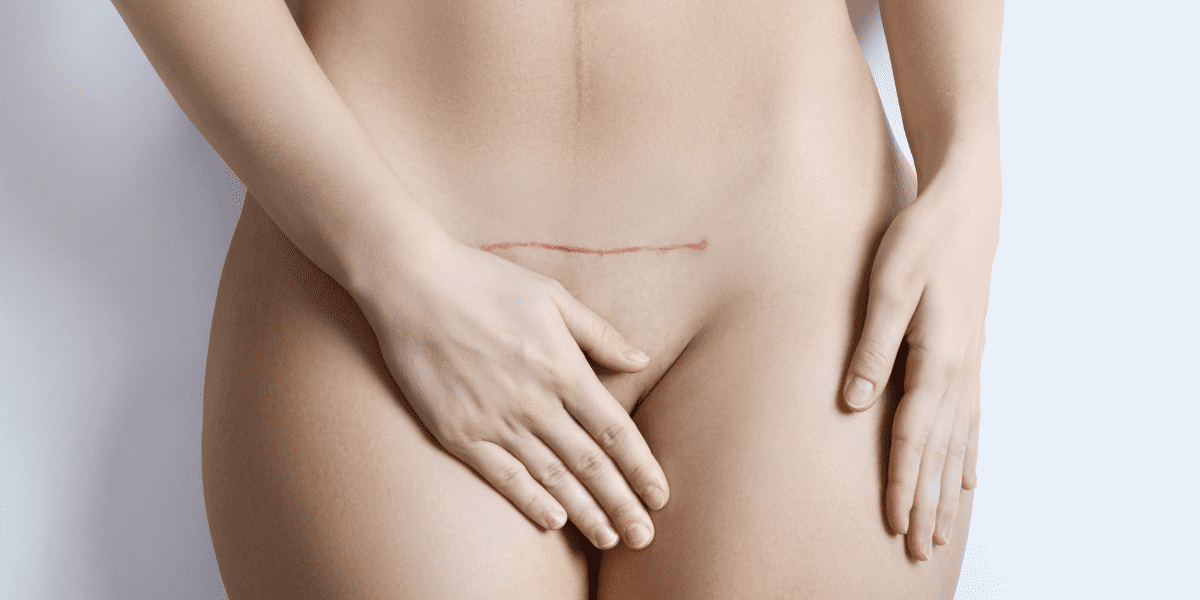
Clean your wound properly
Make sure that you clean your c-section incision often, and ensure it is fully dry before putting on clothes or dressings.
Leaving your wound humid will invite bacteria to grow in your skin, causing that horrible infection smell that may have led you to this article.
When drying, make sure you pat rather than rub as the rubbing can lead to aggravation which can cause an infection to start.
Wear loose-fitting clothing
You may have noticed a common thread in c-section aftercare by now. A lot of consideration needs to be taken to avoid irritating your cesarean incision during recovery to reduce the risk of getting infected.
Wearing too tight clothes can pull on the weakened scar tissue, leading to your incision opening and an infection manifesting. They can also cause chaffing or just be extremely painful on your tender scar.
Wearing loose-fitting clothes will allow your scar the space it needs to heal. Plus, as a new mother, comfort is everything! So if you ever needed a reason to spend all day in sweats, this is it!
Eat healthily
Not only is it essential to eat healthily so that your incision has the vitamins, minerals, and amino acids needed to repair itself, what you eat can also affect infections.
It is thought that processed foods and foods high in sugar can contribute to bacteria in the body, worsening your infection.
Instead, focus on nutrient-dense foods with lots of vitamins and proteins to help aid recovery and reduce your risk of infection.
Stay hydrated
Hydration is critical in your postpartum recovery as it keeps your skin hydrated, reducing the risk of your scar opening.
For infections specifically, drinking lots of water will help your body get rid of some of the toxins in your body and should help your body fight infection before it spreads.
Water alone will not cure an infection, but it can help recover from it.
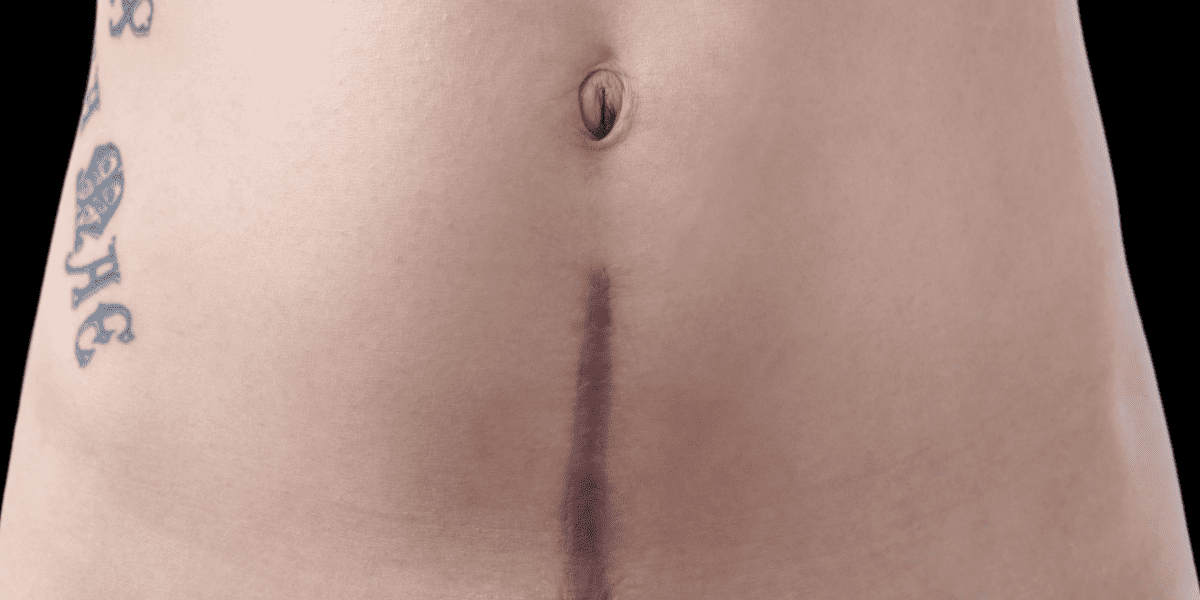
Can my scar get infected years later?
Now that you know the ways to help prevent c-section infections in the weeks and months following your surgery, you might be wondering about the implications of your c-section scar a few years later.
In rare cases, a c-section incision may not heal properly. This can lead to the scar tissue becoming infected years down the line.
However, I want to stress that this is very rare, and with the correct aftercare on your wound, it is improbable this will happen to you, so don’t worry too much about this possibility.
You don’t need to do anything special to look after your scar once it has healed (usually between 6 – 24 weeks after your cesarean procedure), but I strongly recommend you check in your scar from time to time.
I also suggest you get into the habit of moisturizing your scar to help keep the skin around it hydrated and firm.
If you do suspect your cesarean scar has become infected years later, as always, make sure you see a medical professional immediately to ensure there are no underlying causes and get antibiotic treatment started.
In extremely rare cases, your doctor may recommend a second surgery to get rid of the infected tissue, but this will only happen if antibiotics do not work.
That moment you realize your c-section incision is radiating a strong, unpleasant smell can be really scary.
Your mind may find itself running to the worst-case scenario, putting even more stress on you in an already stressful situation.
The best way to avoid getting to the point of infection is to look after your body and support your own recovery by taking it easy and following the steps in this post.
Don’t rush back into everyday life before your body has appropriately healed just because other mothers around you may have healed faster. Every mother has a unique body that heals in its own time, and yours is no exception.
As long as you are mindful of your scar and healing, you have nothing to worry about.
Now all that’s left to do is focus on your new job as a mom!


